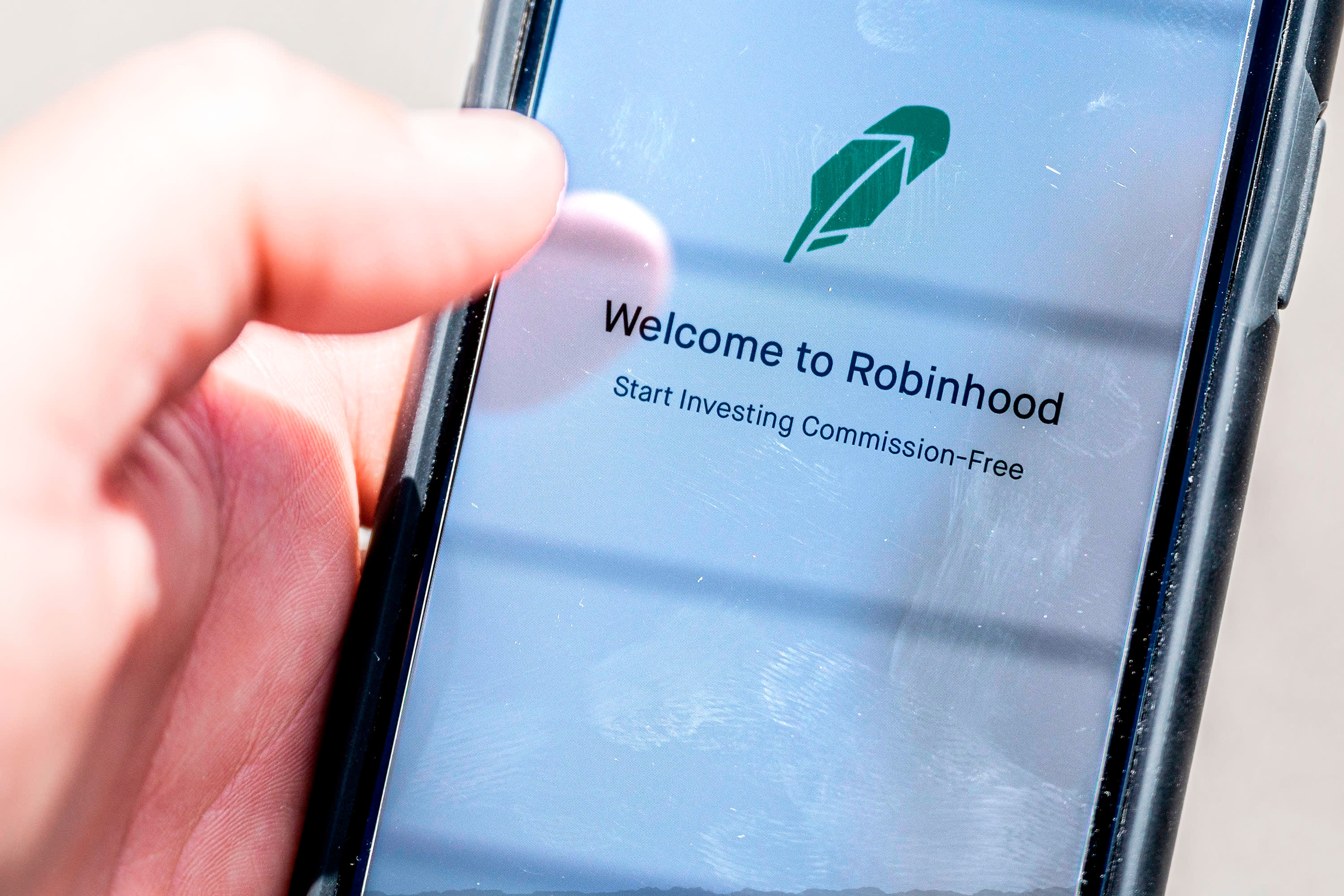Robinhood lifts trading restrictions on GameStop and all other stocks

The Robinhood investment app is see on a smartphone in this photo illustration on June 24, 2020 in Washington,DC.
Jim Watson | AFP | Getty Images
Stock trading app Robinhood removed temporary trading restrictions on all stocks including GameStop and AMC Entertainment Holdings after a tumultuous week for markets.
The company issued an update on its website late on Thursday, saying: “There are currently no temporary limits to increasing your positions.”
Earlier in the day, Robinhood users were only able to trade 500 GameStop shares and 5,500 AMC shares, according to Reuters.
A wave of retail investors inspired by the Reddit board WallStreetBets piled in on GameStop shares and other heavily shorted stocks last week, resulting in huge losses for some hedge funds.
In a bid to try to manage the situation, Robinhood restricted trading in certain volatile stocks Thursday last week including GameStop, Express, Koss, and legacy phone makers Nokia and Blackberry.
Robinhood limited trading in 13 equities in total, allowing clients to sell positions but not open new ones in certain securities, provoking fury from users.
On Sunday, Vlad Tenev, co-founder and co-CEO of Robinhood, took to invitation-only audio chat app Clubhouse to defend the company’s decision to restrict trading, saying it was aimed at protecting the firm and its customers.
In the Clubhouse talk, Tesla CEO Elon Musk pressed Tenev on why the platform, a pioneer of commission-free trading, decided to restrict trading.
“We had no choice in this case,” Tenev said. “We had to conform to our regulatory capital requirements.”
Tenev said Robinhood’s operations team received a request at 3:30 a.m. PT last Thursday from the National Securities Clearing Corp. Robinhood and other brokers are required to meet certain deposit requirements from clearinghouses like NSCC each day. The amount required is based on factors such as volatility and concentration in certain securities, Tenev said.
Robinhood got a request for a security deposit of $3 billion from the NSCC to back up trades, “an order of magnitude more than what it typically is,” Tenev said. The company raised an additional $1 billion in emergency capital from existing investors in an effort to shore up its balance sheet and enable it to ease the trading curbs.
“Did something maybe shady go down here?” Musk asked Tenev. The Tesla chief has shown support for WallStreetBets on Twitter.
“I wouldn’t impute shadiness to it or anything like that,” Tenev responded. “The NSCC was reasonable subsequent to this.”
Robinhood and the NSCC later agreed to reduce the $3 billion number down to around $1.4 billion, but Tenev said his firm was still forced to take action to limit trades.
Asked by Musk whether there would be any further limits on trading in future, Tenev said: “I think there’s always going to be some theoretical limit. We don’t have infinite capital.”
Robinhood wasn’t the only share trading app to implement restrictions.
British share trading app Freetrade told clients last Friday that it had disabled purchases of U.S. stocks but it lifted the restrictions earlier this week.
“There haven’t been any restrictions on these for the better part of this week,” a Freetrade spokesperson told CNBC. “There was just a brief window on Tuesday (a few hours) when buys were disabled.”
— Additional reporting by CNBC’s Ryan Browne.




